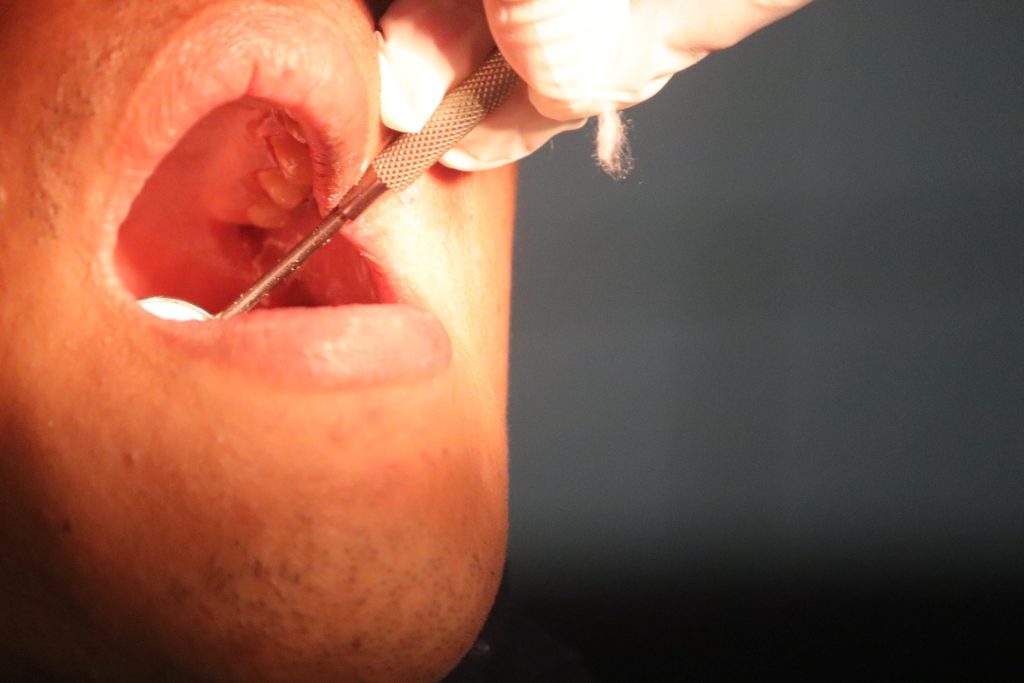Your oral health isn’t just about maintaining a bright smile; it serves as a window into your overall health. Surprisingly, the state of your mouth can offer valuable insights into the condition of the rest of your body. In this exploration, we delve into the intricate connection between oral health and overall well-being, unveiling the profound impact that oral health can have on various aspects of your physical health.

The Intricate Link Between Oral and Overall Health
The human mouth is a bustling ecosystem, harboring a multitude of bacteria—most of which are harmless. However, the mouth serves as the gateway to the digestive and respiratory tracts, and some of these bacteria can trigger diseases when they find their way into other parts of the body.
Ordinarily, the body’s natural defenses, coupled with good oral hygiene practices like daily brushing and flossing, keep these bacteria in check. Yet, in the absence of proper oral care, bacterial levels can surge, paving the way for oral infections such as tooth decay and gum disease.
Moreover, specific medications, including decongestants, antihistamines, painkillers, diuretics, and antidepressants, can reduce saliva flow. Saliva plays a crucial role in washing away food particles and neutralizing acids produced by oral bacteria, acting as a protective shield against disease-causing microbes.
Research indicates that the bacteria present in the mouth, coupled with inflammation associated with severe gum disease (periodontitis), may contribute to the development of certain diseases. Additionally, conditions like diabetes and HIV/AIDS can compromise the body’s resistance to infection, intensifying the severity of oral health issues.

Conditions Linked to Oral Health
Your oral health is intricately linked to various diseases and conditions, including:
1. Endocarditis
- This infection affects the inner lining of the heart chambers or valves (endocardium).
- Bacteria or germs from the mouth can spread through the bloodstream, attaching to certain areas in the heart.
2. Cardiovascular Disease
- While the connection is not fully understood, research suggests links between heart disease, clogged arteries, and stroke with inflammation and infections caused by oral bacteria.
3. Pregnancy and Birth Complications
- Periodontitis has been associated with premature birth and low birth weight.
4. Pneumonia
- Certain oral bacteria can be drawn into the lungs, leading to pneumonia and other respiratory diseases.
Conditions Affecting Oral Health
Several conditions can impact your oral health, including:
1. Diabetes
- Diabetes reduces the body’s resistance to infection, putting gums at risk.
- People with diabetes and gum disease may struggle to control blood sugar levels.
2. HIV/AIDS
- Oral problems, such as painful mucosal lesions, are prevalent in individuals with HIV/AIDS.
3. Osteoporosis
- Linked with periodontal bone loss and tooth loss.
- Certain osteoporosis medications carry a minimal risk of jawbone damage.
4. Alzheimer’s Disease
- Worsening oral health is observed as Alzheimer’s disease progresses.
5. Other Conditions
- Eating disorders, rheumatoid arthritis, certain cancers, and Sjogren’s syndrome (an immune system disorder causing dry mouth) are also linked to oral health.
It’s essential to inform your dentist about any medications you are taking and any changes in your overall health, especially after illness or the onset of chronic conditions like diabetes.
Preserving Your Oral Health: A Holistic Approach
To safeguard your oral health and, by extension, your overall well-being, adopt these daily practices:
1. Brushing and Flossing
- Brush your teeth at least twice a day for two minutes with fluoride toothpaste and a soft-bristled brush.
- Floss daily to remove plaque and food particles between teeth.
2. Mouthwash
- Use mouthwash to eliminate residual food particles and maintain oral freshness.
3. Healthy Diet
- Consume a nutritious diet and limit sugary foods and drinks that contribute to tooth decay.
4. Replace Toothbrush Regularly
- Change your toothbrush every three to four months or sooner if the bristles are frayed.
5. Regular Dental Checkups
- Schedule regular dental checkups and cleanings to address issues promptly.
6. Tobacco Avoidance
- Steer clear of tobacco products, which significantly impact oral health.

Remember, addressing oral health problems promptly is an investment in your overall health. The connection between oral and overall health is a dynamic relationship that underscores the importance of holistic well-being. By prioritizing your oral health, you contribute to a healthier, happier you.





